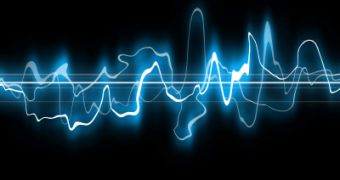How many of you have ever wondered about how a song played on, say, the Martian surface would actually sound? Assuming you pressed the "play" button on a Hi-Fi audio system, would Bach's famous “Toccata and Fugue in D Minor” sound the same as on Earth, as you would expect? Scientists say that no, it would not, and explain why. Just like the outer space causes sound to travel with extremely high difficulty, because it lacks a proper propagation medium, so does the less dense atmosphere of other planets.
This is why, in the Martian atmosphere, for instance, you would barely hear anything at all, let alone perceive every note or, even less likely, enjoy the richness of Bach's music. "Sound doesn't travel very far on Mars," explained Amanda Hanford, an acoustics doctoral degree candidate at Penn State University. Together with Lyle Long, a professor of aerospace engineering at the same institution, she tried to recreate the way sound would be perceived on Mars, by using a computer simulation that took into consideration the composition and low pressure of Mars' atmosphere, as well as the temperature differences on the surface.
The conclusion was that a sound would be heard in a lower pitch. "When you breathe in a helium balloon and speak, your voice is a high pitch," shared Hanford, quoted by Physorg. "Assuming you could breathe in carbon dioxide (which is very toxic), your voice would be a lower pitch."
However, they are not the only researchers to have looked into this matter. Similarly, Dr. Tim Leighton, a professor of acoustics from the Southampton University, tried to do the same for Saturn's Titan moon, aided by Andi Petculescu of the University of Louisiana, also taking into account the placement within a precinct such as a crater. "We could position the audience in different positions in the crater and see how the sound changes. What's a good concert hall on each planet?" asks Leighton, cited by Space.

 14 DAY TRIAL //
14 DAY TRIAL //